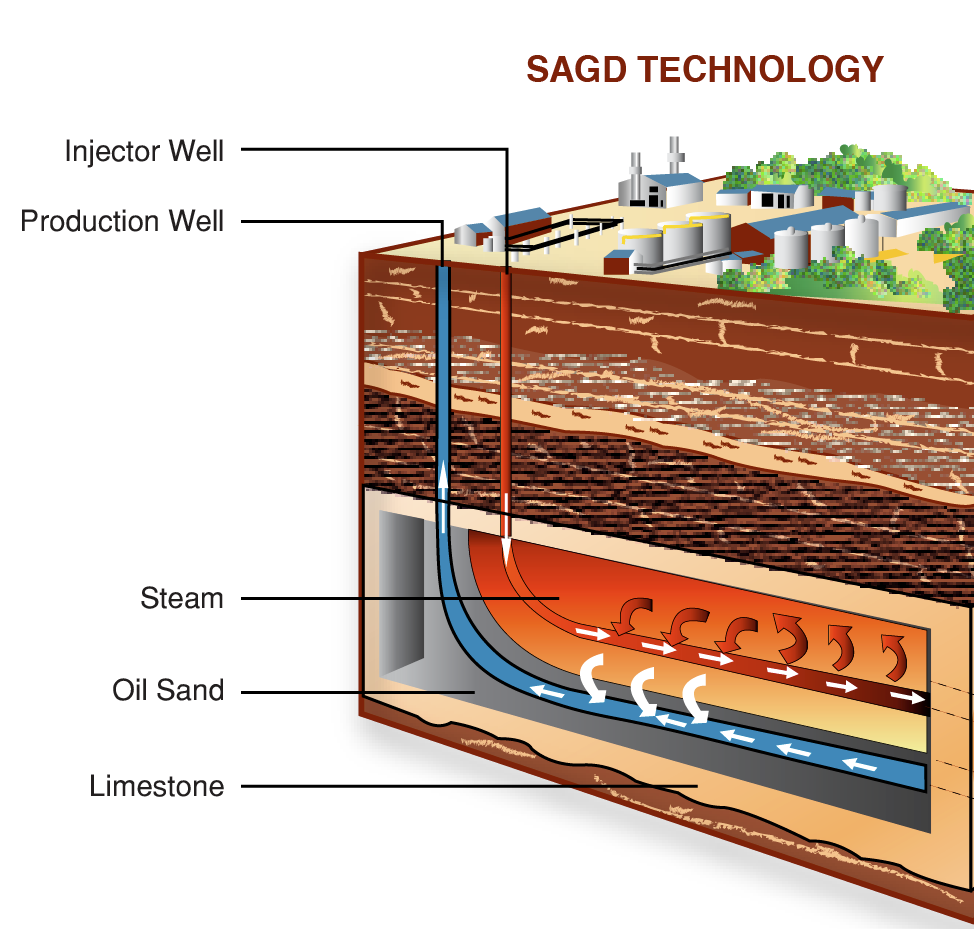Steam Assisted Gravity Drainage (SAGD) 
Steam Assisted Gravity Drainage (SAGD; “Sag-D”) is an Enhanced oil recovery technology for producing heavy crude oil and bitumen. It is an advanced form of steam stimulation in which a pair of horizontal wellsare drilled into the oil reservoir, one a few metres above the other. High pressure steam is continuously injected into the upper wellbore to heat the oil and reduce its viscosity, causing the heated oil to drain into the lower wellbore, where it is pumped out. Dr. Roger Butler, engineer at Imperial Oil from 1955 to 1982, invented the steam assisted gravity drainage (SAGD) in the 1970s. Butler “developed the concept of using horizontal pairs of wells and injected steam to develop certain deposits of bitumen considered too deep for mining.”[1][2] In 1983 Butler became director of technical programs for the Alberta Oil Sands Technology and Research Authority (AOSTRA),[1][3] a crown corporation created by Premier Lougheed to promote new technologies for oil sands and heavy crude oil production. AOSTRA quickly supported SAGD as a promising innovation in oil sands extraction technology.[2] – Via Wikipedia
